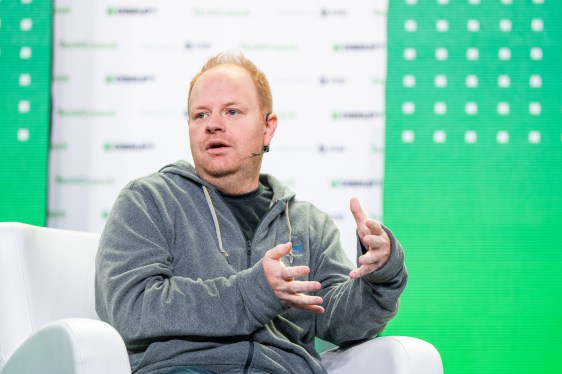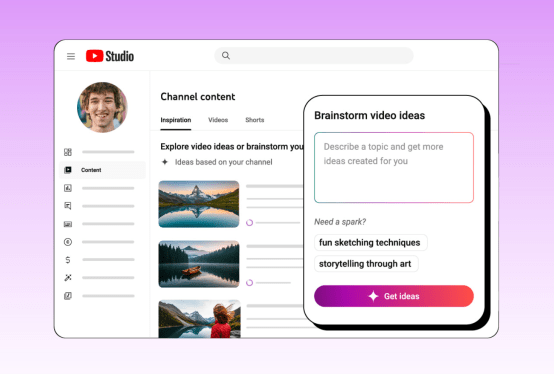# Is Your Company AI Washing? Parker Conrad Thinks It Might Be
[Parker Conrad](https://www.techcrunch.com/2024/08/20/parker-conrad-ripper-s-pounding-on-ai-washing/) is the founder of Rippling, a company that specializes in building conversational AI systems powered by advanced language models. During an interview with *Found*, he discussed his thoughts on whether Rippling’s work qualifies as "AI washing." The conversation touched upon various aspects of AI adoption in the tech industry, including its overuse and misuse.
---
## An Overview of AI Adoption in Tech
The rise of AI has been accompanied by a surge in companies claiming to use it. However, not all of these claims are valid. Parker Conrad, founder of Rippling, believes that some companies are leveraging AI in a way that serves little purpose beyond generating marketing buzz or creating catchy-sounding projects.
### The Problem with "AI Washing"
"AI washing" refers to the practice of integrating AI into products or services solely for the sake of being innovative, without any real value proposition," according to Conrad. "It’s like putting on a new pair of glasses just because you can—it doesn’t solve any problems, and it doesn’t improve anything."
Conrad argues that many companies today are chasing trends in AI without understanding its true potential. He believes this trend is driven by several factors:
1. **High valuations for AI startups:** The tech industry has seen a wave of acquisitions and spin-offs focused on AI. Many of these companies command premium valuations, often due to their ambitious Go-to-Market strategies.
2. **A "mad rush" to adopt AI technologies:** Conrad notes that the AI adoption curve is steeper than ever before. Companies are investing heavily in AI tools without fully understanding how they can be applied strategically.
3. **Overly ambitious investors:** Investors who back AI startups often lack deep knowledge of the technology or its real-world applications, leading to an arms race of hyperbole and pretense.
---
## The Data: AI Deal Share Growth
To illustrate his point, Conrad cites a recent report from PitchBook, which revealed that in the first half of this year alone, AI companies accounted for 41% of all deal value. This growth has been exponential, with several major deals emerging during the past six months.
Some notable examples include:
- **[AI-powered chatbots company]:** Raised $20 million from a Series A funding round.
- **[Another AI startup]:** Secured a $50 million investment from a top-tier venture capital firm.
- **[Third AI-focused tech company]:** Closing deals worth an aggregate of $150 million.
These figures underscore the rapid pace at which AI companies are gaining market share, but they also raise questions about the quality and utility of these investments.
---
## Why Is AI Adoption So Aggressive?
The root cause of this trend lies in a combination of factors:
### 1. **Over-optimization for metrics**
AI adoption often begins with simple metrics like percentage of active users or time-to-market, regardless of whether these metrics align with long-term business goals. As a result, companies are willing to cut corners or prioritize features that don’t deliver real value.
---
### 2. **The "sex factor" in AI deals**
Conrad draws an analogy between the prevalence of AI deals and the "sex factor" in tech acquisitions. He argues that many companies today are seeking out AI as a way to differentiate themselves from competitors, regardless of its practical relevance or market potential.
In his view, this phenomenon is driven by a desire for innovation that often overshadows common sense. As he puts it: "AI is such a broad and fluffy technology that it can be applied in almost any context. The problem is not the lack of options—it’s the overabundance."
---
## Why Are Investors So Passionate About AI?
The high valuations associated with AI companies have also created an environment where even minor exits are celebrated as milestones. According to recent data, a single exit from an AI-focused startup can account for billions in returns.
This dynamic has led to a culture of hyper-aggressiveness among both startups and investors. Many companies are now content with simply "checking off" the AI box without fully understanding its value potential.
---
## The Future of AI in Tech
Despite the hype, Conrad believes that AI will eventually become more practical and less ornery. He notes that while some industries—such as healthcare and finance—are already seeing meaningful applications for AI, others are still in the early stages of exploration.
For example:
- **Healthcare:** AI is being used to improve diagnostics and drug discovery.
- **Finance:** AI is transforming algorithmic trading and fraud detection.
- **Retail:** AI-powered shopping assistants are gaining traction.
However, Conrad warns against the dangers of over-reliance on AI. He suggests that companies should adopt the technology only when they can demonstrate clear ROI (return on investment).
---
## Final Thoughts
In summary, Parker Conrad’s remarks highlight a troubling trend in the tech industry: an overemphasis on AI for its own sake. While the technology has immense potential, its misapplication could lead to wasted resources and ill-informed decisions.
As the industry continues to evolve, it will be critical to strike a balance between innovation and practicality—between chasing trends and solving real-world problems.
---
## Conclusion
Parker Conrad’s perspective on AI adoption is a reminder that hyper-aggressive innovation can sometimes be a double-edged sword. While AI has the potential to revolutionize countless industries, its true value lies in its ability to deliver tangible benefits to customers. Until then, it may remain little more than "AI washing."



